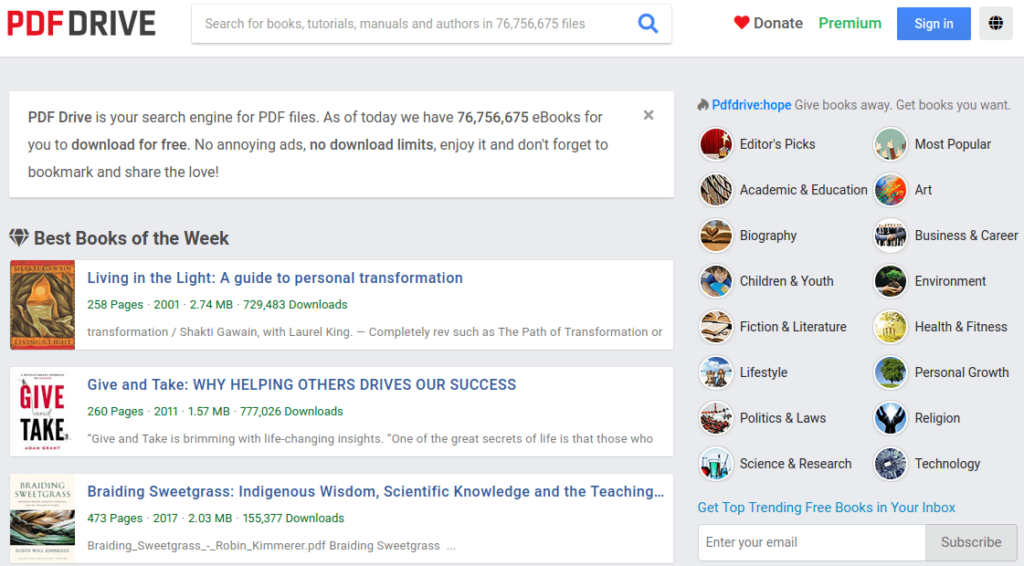You may — or may not — have noticed that Google search censors its search engine results and omits certain resources it categorizes as “wrongthink” or as threatening to its bottom line. Makes sense, but the problem is that Google positions itself as an unbiased, benevolent provider of information. It most certainly is not as benign as that.
There are so many excellent search resources and compiled searchable databases available to you, in all sorts of specialized topics, but these remain inaccessible using the technocratic tools we are given by default.
If you can think for yourself and trust your discernment more than you trust the technocracy to decide what is and isn’t acceptable for you to see, check out these resources that are not easily found by doing a Google search.

Alternative Research Engines
- PdfDrive.com – PDF Drive is a free service that allows downloads from the web via its servers, which are mainly a proxy for the data that is controlled by other servers. Excellent resource.
- Archive.org – “Internet Archive is a non-profit library of millions of free books, movies, software, music, websites, and more.” This site contains the waybackmachine which has snapshots of most websites over weekly or daily time frames over the years. It also hosts files of texts that are out of print or in the public domain, for example The Gulag Archipelago.
- RefSeek.com – Search engine and features a curated directory of:
- Almanacs
- Atlases
- Answers
- Bookmarking
- Calculators
- Coding
- Dictionaries
- Directories
- Educational Videos
- Encyclopedias
- Games
- Health & Medical
- Literature
- Mathematics
- News Sites
- Publishing
- Quotations
- Science
- Search Engines
- Software
- Teacher Resources
- Translation
- Visual Arts
- Writing
- WorldCat.org – searchable catalogue of (20 thousand+) library catalogues, and a tool to make your own citations lists, easily and formatted according to your needs:
- Base-search.net – An academic search engine, accesses over 100 million scientific research pages and academic studies. Boasts that over 70 percent of those papers are free to read.
- Science.gov – “Science.gov searches over 60 databases and over 2,200 scientific websites to provide users with access to more than 200 million pages of authoritative federal science information including research and development results.”
- Springer.com – “Providing researchers with access to millions of scientific documents from journals, books, series, protocols, reference works and proceedings.” Has academic and corporate versions.
- Bioline.org.br – “Bioline International is a not-for-profit scholarly publishing cooperative committed to providing open access to quality research journals published in developing countries.”
- RePEc (Research Papers in Economics) – a decentralized bibliographic database of working papers, journal articles, books, books chapters and software components whose purpose is the dissemination of research in Economics and related sciences.
Remove Google’s Control of Your Tech
Search engine alternatives to Google.
Go further and de-google your android phone using LineageOS for various Android phones or CalyxOS or GrapheneOS (install GrapheneOS on the most recent Pixel phones).